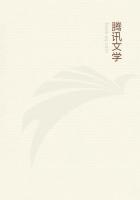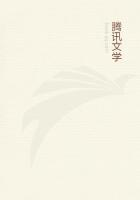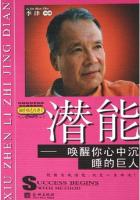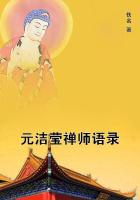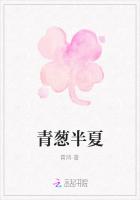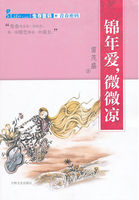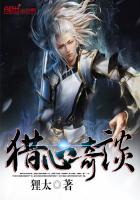Cooper, at the Globe in Paternoster Row, 1741. It is a mere fragment of thirty-two pages. The author says that the arguments made use of by Locke in order to prove that there are no innate ideas will, I think, hold fully as strong against all implanted appetites, or whatsoever "actions which we style moral or immoral, virtuous or vicious, are approved and disapproved, not by nat ure and constitution, but by habit and association."[19]There is a work, " An Examination of the Scheme of Morality advanced by Dr. Hutcheson, late Professor of Morality in the University of Glasgow," 1759, in which the author criticises Hutcheson's wholc doctrine of senses, instincts, affections; and objects to his attempts to reduce all virtue and religion to benevolence or goodgwill to others, and also to his doctrine of moral sense as a faculty.
[20]"Memorials of Alexander Moncrieff and James Fisher," by Dr. Young and Dr. Brown.
[21]Parish records of Alloa in Register Office, Edinburga; "Catalogue of Graduates in Edinburgh," edited by Laing (Bannatyne Club); " Presentation Book " of Marischal College, Aberdeen.
[22]In the Preface to his "Moral Philosophy," he refers to a certain poet, " universally confessed to have shown a most extraordinary genius for descriptive poetry in some of his works, and in all of them a heart deeply impregnated with the warmest love of virtue and mankind," as likely from friendship to cast his eye on that Preface; from which we may argue that he had contracted a friendship with James Thomson.
[23]I cannot find that this work was published till 1763, the date of the copy in W. S. Library, Edinburgh. In 1740, he published a translation of " Vertot, Three Dissertations."[24]This was Thomas Rundle (born 1686, died 1743). Strong objections were taken to his getting the see of Gloucester, and so he went to Derry, when Thomson writes of him in a poem to the memory of Talbot:
"Though from native sunshine driven, Driven from your friends, the sunshine of the soul, By slanderous zeal and politics' infern, Jealous of worth."In these times, men were sent to Ireland who would not be tolerated in the Church of England. Pope says of him: "Rundle has a heart and Swift:
"Rundle a bishop, well he may, He's still a Christian more than they."He was the author of " Letters to the late Mrs. Barbara Landis," in which he speaks in favor of theatres, gives a high place to reason, says a word in behalf of Chubb, praises Shaftesbury, though he regrets his opposition to Christianity. He says of those who would destroy the foundation of virtue: "That they turn, as the elephants did of old, and trample down those that brought them to the war." The following has, Often been uttered since:
"Christianity is so amiable in itself, that what Plato says of virtue is true of it, that if it is beheld in its native charms every man would be in love with it."[25]See " London Magazine," for that year.
[26]It does seem rather strange that Reid sbould nowhere have acknowledged what he owed to Turnbull.
[27]"Preceptor," vol. ii., 1748; Darling's "Cyclopaedia; "Mackie's " Index Funercgrius; " Kennedy's "Annals of Aberdeen."[28]"Scottish Register," January, February, March, 1794.
[29]"Scot'S Magazine," August, 1841; Somerville's "Life and Times."[30]"Scot's Magazine," 1747, 1749; Chambers's "Biographical Dictionary."[31]The representative book of the age then passing away was " Natural Religion insufficient, and Revealed Necessary to Man's Happiness in his Present State " by the late Rev.
Thomas Halyburton, professor of divinity in the University of St. Andrews (born 1674, died 1712). It is a clearly written, respectably learned work, and establishes its point. It was superseded by the deeper discussions raised by Hume. ("Life and Writings," by Burns.)[32]The author of this work has been aided in his researches on this subject by the great kindness of the Rev. Alexander Christison, clerk to the Presbytery of Chirnside.
[33]"My own Life," by David Hume; "Life and Correspondence of David Hume," by John Hill Burton, &c.
[34]For some years past it has been well known in literary circles in Edinburgh, that there was a scandal about David Hume in his younger years. Having been kindly allowed to look into the ecclesiastical records which bear upon it, Ifind that there was a charge brought, but no evidence to support it. A woman did, March 5, 1734, charge "Mr. David Home, brother to Ninewells, as being the father of her child." But this woman had previously had three illegitimate children; she had refused to say who was the father of her child when David Hume was in the country, though it was known he was leaving, and she brought the charge after he was gone. The Presbytery of Chirnside, when the case was brought before them, rebuked the woman for her conduct, and there is no other record of the matter. It is a curious circumstance that this incident should have happened at the time when the youth was leaving his home in so singular a frame of mind.
[35]"Memoirs of R. and J. A. Haldane," chap. xxv.
[36]J.S. Mill labors to derive all our ideas and convictions from sensations. He is to be met by showing that we never have a sensation without knowing a self as sentient.
[37]Mr. Mill is in difficulties at this point, and avows it in a foot-note, P. 174: Our belief in the veracity of memory is evidently ultimate; no reason can be given for it which does not presuppose the belief, and assume it to be Well grounded." The full facts of the recognitive power of memory are not embraced in this brief enunciation, but there is much stated, and more implied; he should have inquired how much is involved, and he would have seen that there is truth admitted fatal to his system. He should also have shown on what ground he proclaims this belief to be "evidently ultimate," and then we might have shown that on the same ground, that is self-evidence, we are entitled to call in the other ultimate beliefs.
[38]J.S. Mill's treatment of space and time is superficial.

